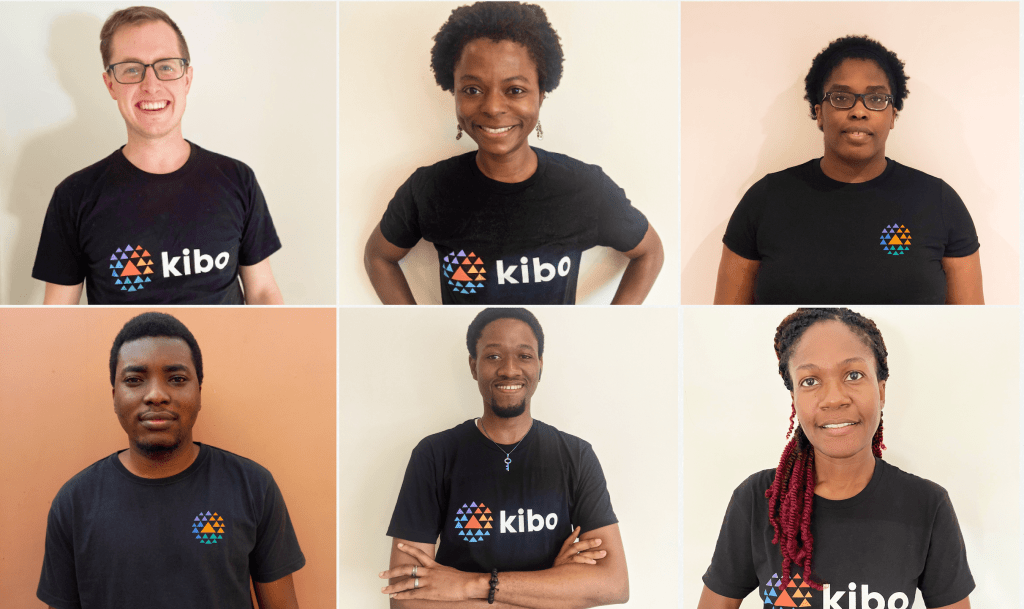When she was 10 years old, Ope Bukola’s family relocated from Nigeria to the U.S., where she advanced her studies to later pursue a degree in economics. Exposed to the top-of-the-line education at New York University, she wondered how her friends in Nigeria and other bright students in Africa could access the same.
Upon graduating, she embarked on a quest to make education easily accessible, keen to pivot on opportunities in the American edtech sector as she gained experience through roles that saw her digitize textbooks at Palo Alto Networks and later serve as the product lead at Google Classroom.
By the time she left Google in 2019, Bukola knew exactly what she needed to do to make quality education accessible and affordable, and after years of planning and studying the market, she was joined by Keno Omu and Rob Cobb to launch the Kibo School last year. Omu is the former dean at Africa Leadership University while Cobb is a master teacher at Flatiron School who previously worked as curriculum engineer at Make School.
Kibo is an online school that is set to offer several STEM degree programs targeted at students in Africa. And, its take-off is being propelled by a $2 million seed funding led by Neo, a VC firm by the co-founder of Code.org. Future Africa, Pledges, Brooklyn Bridge Ventures, Transcend Network and several angel investors also participated in the round. The new funding brings the total capital raised by the startup to $2.4 million after last year’s pre-seed round.
South Africa’s edtech FoondaMate eyes speedy takeoff after $2M funding
“There are so many young people getting into the technology workforce, and I really think the continent could be the place for young technologists, if only our education system was up to the task. Our mission at Kibo is to provide a better alternative to traditional education,” said Bukola, who is also the CEO at Kibo.
“The primary goal for the seed round is to get the degree program off the ground. We have been doing these short classes, and we’re going to keep doing them and going through the process of applying for accreditation. But our primary focus now is bringing in students for our degree programs,” she said, adding that through the short courses launched last year, the school has trained 400 students in 13 countries in Africa.
The focus on STEM was validated when Kibo won the GSV Cup, one of the largest edtech pitch competitions globally, in April this year.

“The future of global talent is African. We’re the youngest and the fastest-growing continent. So, if you want to solve the world’s future problems, literally the young people are going to be in Africa. This is not just a charitable thing; it’s just a practical thing because Africa is where the opportunity for growth is,” she said.
The school opened the application window for its full-time computer science degree, its inaugural program, yesterday, and aims to attract 100 students in the first cohort of the three-year degree program, which will have students paying a total cost of $6,000.
The program is accredited by Woolf, a collegiate university based in U.K. As a Woolf member, students enrolled at Kibo will earn European Credit Transfer and Accumulation System (ECTS) credits, which are transferable across the globe.
Kibo has opened up the program to students in six cities across Kenya, Nigeria and Ghana, and those enrolled will be required to live at least 100 kilometers from these cities, to make it easy for occasional meetups. The school plans to introduce more programs and to take in new students every quarter, starting next year.
“It’s an online degree, but we have target cities because it’s still really important to help students build community. So, in every city where we’re enrolling students, there’s going to be an adviser on the ground who will organize meetups every month,” said Bukola.
Bukola noted that the building communities of students in different countries will ensure that the school retains its students and helps circumvent the common failures of online learning.
Learning at Kibo is moderated, not self-paced like most online courses, and students are required to work on collaborative projects. They are also paired with professional mentors and have to attend internships before graduating. The school has also signed commitments with several organizations to offer internships and part-time work to its students.
“The key for us is understanding that human connection is at the heart of learning. So, you can’t remove people from the learning experience. And maybe the cheapest thing to do would be to make the students watch videos and learn completely on their own, but that simply doesn’t work. That is why we are really focused on collaborative learning,” said Bukola.
“We’re really focused on making it a very professional degree. It’s not just like book learning, students will build projects and then one quarter every year they will have to do an internship or an industry experience.”
Bukola said they are working on building a more intelligent system that will automate most of the school’s administrative tasks including pairing students for revision.
Manara gets $3M to grow tech talent pool in the Middle East and North Africa






